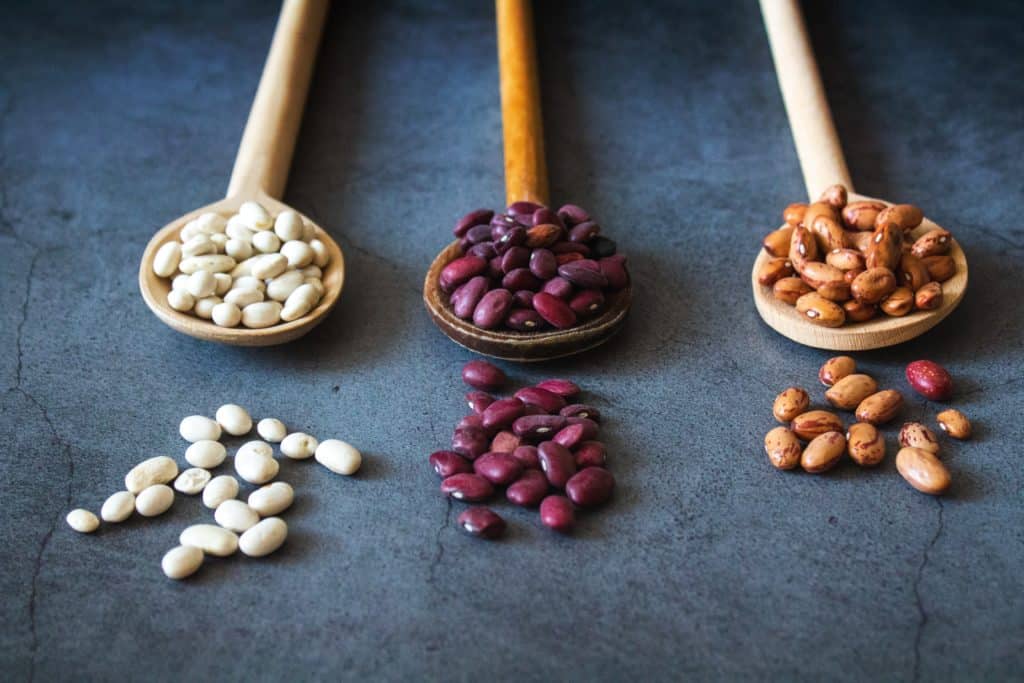
Because heart disease is generally considered a disease of lifestyle, it is no surprise that what you eat affects your risk of developing cardiovascular disease. One diet that has been shown to be incredibly beneficial for your heart is ‘The Portfolio Diet’. The Portfolio Diet was developed to incorporate all of the dietary habits that have been shown in the literature to lower cholesterol.
In fact, this diet has been shown to lower LDL-cholesterol (this is the ‘bad’ cholesterol) by 20-30% and this happened regardless of whether or not a person was on already on a cholesterol lowering drug, such as a statin!
Given this diet has an added benefit to statins, ‘The Portfolio Diet’ can be used to lower your dose of statin (under doctor supervision) or keep you off of them entirely! This is great news because the lower the dose, the less chance of statin-induced side effects such as muscle pain or increased risk of diabetes.
While cholesterol lowering is this diet’s ‘claim to fame’, it has additional cardiovascular benefits such as: lowering inflammation and aiding weight loss. Now that we know why this therapeutic diet is given, let’s dive into what this diet looks like!
The Portfolio Diet
This diet is less about removing certain foods and more about adding certain foods. These are 4 major food groups that make up ‘The Portfolio Diet’:
- Plant sterols (Found in: Sunflower seeds, rice bran oil, corn oil, peanuts, avocado, rice milk and sesame seeds (whole, dried)
- How much? 2 grams/day
- Why? A sterol is a fat that is in a ring form. Cholesterol is an example of a specific type of sterol. Eating plant sterols, because they look similar to cholesterol, can block the absorption of cholesterol in the intestines. Studies have shown that eating 2 grams a day can lower your cholesterol by 10%, and that is only one component of this diet!
- Nuts (Especially almonds)
- How much? 50 grams/day
- Why? Nuts are rich in healthy monounsaturated fats. Replacing your unhealthy fats in your diet (canola oil, fast food, butter, ect.) with these more heart-friendly fats has been shown to reduce cholesterol and reduce your risk of heart disease. Nuts, in general, contain monounsaturated fats, plant sterols, plant protein and fiber, and other phytochemicals. All of these components operate through a variety of mechanisms to reduce LDL-cholesterol.
- Soy protein (Powders, tofu, tempeh, edamame, natto, soy burgers, soy milk/yogurt/cheese, ect.)
- How much? 50 grams/day
- Why? Soy protein has been shown to reduce cholesterol and risk of heart disease. One meta-analysis showed that replacing your animal protein with soy protein leads to a 7-24% decrease in cholesterol, with the largest drops being in the highest risk groups. Soy lowers cholesterol by reducing liver cholesterol production and it may increase the liver’s ability to pull cholesterol out of the blood by upregulating LDL-cholesterol receptors on the liver.
- Soluble fibre (Black beans, navy beans, avocado, chickpea, brussel sprouts, sweet potato, broccoli, rye bread, oatmeal, chia seeds, psyllium, guar gum, pectin)
- How much? 10-25 grams/day
- Why? Increased dietary fibre intake is associated with a significantly lower prevalence of cardiovascular disease and a 5–10% reduction of LDL-cholesterol levels. It does this by binding your bile salts (made of cholesterol) and cholesterol in your gut, thus preventing cholesterol from absorbing back into the body. Fibre also feeds your healthy gut bacteria which play a massive role in your metabolism. Finally, fibre will help you feel fuller for longer, which should reduce the amount of calories you consume in a day.
If you would like to get started on your journey to a healthy heart you can book your free ‘Meet and Greet’ to see if naturopathic medicine is a good fit for you! For booking please either call 604-685-1181 or head to my contact page and click ‘Book Now’.
Disclaimer
Information can be empowering, but we all have unique health profiles and needs. The health-related information contained in this article is intended to be general in nature and should not be used as a substitute for a visit with a licensed naturopathic doctor. The advice in this article is not intended to provide medical advice, diagnosis or treatment.
References
- Jenkins, D. J., Josse, A. R., Wong, J. M., Nguyen, T. H., & Kendall, C. W. (2007). The portfolio diet for cardiovascular risk reduction. Current atherosclerosis reports, 9(6), 501-507.
- Willcox, D. C., Scapagnini, G., & Willcox, B. J. (2014). Healthy aging diets other than the Mediterranean: a focus on the Okinawan diet. Mechanisms of ageing and development, 136, 148-162.
- Kendall, C. W., & Jenkins, D. J. (2004). A dietary portfolio: maximal reduction of low-density lipoprotein cholesterol with diet. Current atherosclerosis reports, 6(6), 492-4.




